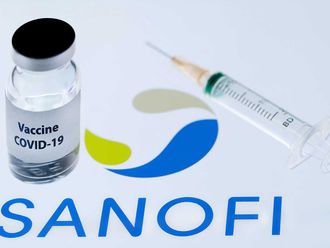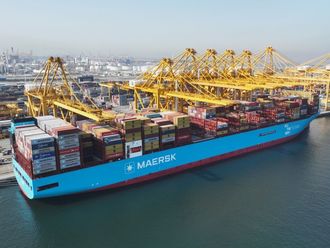Dubai: The Dubai index extended gains for a third session on Monday as investors raised bullish bets triggered by recovering crude oil. The Abu Dhabi index, however, ended lower.
The Dubai Financial Market (DFM) General Index ended 2.3 per cent higher at 3,851.87, after gaining more than 15 per cent on Thursday and Sunday. The Dubai index retreated from its position as the best performing index in November after the index shed more than 25 per cent since the start of the month.
“We are seeing some stabilisation as we near year end. There is an international backdrop which is positive. There’s a recognition that our region is fundamentally undervalued despite the correction in oil price,” said Saleem Khokhar, head of equities at National Bank of Abu Dhabi’s asset management group.
Oil rose above $62 a barrel, mirroring gains in equities, as investors became more confident that there would be no further substantial price loss in the run-up to the new year.
Saudi Arabia’s oil minister, Ali al-Naimi, said that lower crude prices would help demand by stimulating the economy and slow down supply growth. Oil fell about 20 per cent since Opec chose to maintain its production target at a Nov. 27 meeting.
“Volumes would peter out due to holiday season. It would be low volumes with high volatility. we are in recovery mode as opposed to a sell-off.” said Khokhar.
The DFM recorded volume of Dh1.33 billion on Monday, as against an average of about Dh700-800 million last month.
Analysts also feel that current valuations are very attractive.
“We are in an environment where valuations are attractive despite an implication of a lower price in the near term. I would expect the markets to stabilise and recover until the first quarter of 2015,” said Khokhar.
Banks and real estate companies are attractive at these levels, he said.
Profitability of the UAE’s banking sector will continue to remain stable as margin pressures are moderated by asset-quality improvements, recoveries and asset growth, according to credit rating agency Moody’s.
On funding side, over the outlook horizon, analysts expect strong deposit growth in the UAE to increase the contribution of customer deposits to around 65 per cent to 70 per cent of total assets. Despite significant contractual maturity mismatches, historically, most of these deposits have been stable during past crises.
The rating agency expects net earnings to remain strong over the outlook period. Both Dubai and Abu Dhabi-based banks will continue to benefit from lower loan-loss provisions because of declining bad loans; higher problem loan recoveries and settlements because of improved property prices; and modest asset growth.












